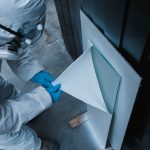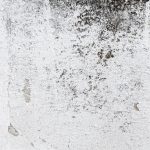
Buying or selling a home in Florida can be an exciting yet complex process, especially when mold is part of the equation. Due to the state’s humid climate, mold issues are not uncommon. Understanding Florida’s mold disclosure laws is crucial for both buyers and sellers to navigate real estate transactions smoothly and avoid potential legal disputes.
What Are Mold Disclosure Laws?
Mold disclosure laws require sellers to inform potential buyers of any known mold problems in the property. These laws are designed to protect buyers from purchasing homes with hidden issues that could compromise their health or financial investment.
While Florida does not have specific statewide laws mandating disclosure of mold, it does have general real estate disclosure laws. Sellers are obligated to disclose any material defects they are aware of, including mold. Failure to do so can result in legal consequences for misrepresentation or fraud.
Why Mold Disclosure Is Important in Florida
Florida’s humid environment, especially in cities like Naples, Marco Island, Bonita Springs, Estero, and Fort Myers, creates ideal conditions for mold growth. Mold can damage a home’s structure and pose health risks, including respiratory problems, allergies, and skin irritation. Disclosing mold issues ensures transparency, helps buyers make informed decisions, and protects sellers from future liability.
Seller’s Responsibilities
In Florida, sellers must:
- Disclose any known mold issues to prospective buyers.
- Provide accurate information about the extent of mold damage and any remediation efforts.
- Be honest about past water damage or flooding, which could indicate potential mold risks.
While sellers are not required to conduct mold inspections, it’s a good idea to address any visible mold issues before listing the property to avoid complications during the transaction.
Buyer’s Responsibilities
Buyers also have a role to play in ensuring their investment is safe. Here’s what buyers should do:
- Hire a licensed home inspector with experience in mold detection.
- Request mold testing, especially in high-risk areas like attics, basements, and HVAC systems.
- Ask for documentation of any past mold remediation efforts.
If mold is discovered during the inspection, buyers can negotiate with the seller for repairs or a price reduction.
How to Handle Mold Issues During a Real Estate Transaction
If mold is found during the sale process, both parties must work together to resolve the issue. Here are some steps to consider:
- Professional Mold Inspection: Hire a licensed mold inspector to assess the severity of the problem. Companies like QCI, based in Naples, offer comprehensive mold testing and remediation services across Southwest Florida, including Bonita Springs, Marco Island, and Estero.
- Mold Remediation: Address the mold problem before finalizing the sale. Sellers can work with certified mold removal specialists to ensure the property is safe and ready for transfer.
- Renegotiate the Sale Terms: Buyers may request a price adjustment to cover the cost of mold remediation or ask the seller to handle the repairs before closing.
- Disclose All Actions Taken: Once the mold has been remediated, sellers should provide buyers with detailed reports of the inspection and remediation process to ensure transparency.
Common Mold-Related Legal Disputes
Legal issues can arise when sellers fail to disclose known mold problems. Here are some examples:
- Undisclosed Mold Damage: Buyers may sue sellers for non-disclosure if they discover mold after purchasing the home.
- Faulty Remediation: If mold remediation was done improperly, buyers might seek compensation for additional repairs.
- Health-Related Claims: Mold-related health issues can lead to lawsuits if buyers believe the seller knowingly withheld information about mold.
To avoid these disputes, sellers should always disclose any known issues and ensure remediation is done professionally.
How QCI Can Help
If you’re navigating a real estate transaction in Southwest Florida and need assistance with mold testing, remediation, or expert consultation, QCI is here to help. Our licensed team serves Naples, Marco Island, Bonita Springs, Estero, and the surrounding areas. With over 28 years of combined experience, we specialize in chemical-free mold removal, air quality testing, and 24/7 emergency water damage restoration.
Visit our website at qci-online.com for more information or call us at (239) 777-2875 to schedule an appointment. Our office is located in Naples, Florida, and we’re proud to serve homeowners and real estate professionals throughout the region.
Understanding mold disclosure laws in Florida real estate is essential for protecting your investment and maintaining transparency in property transactions. Whether you’re buying or selling a home, addressing mold issues proactively can save time, money, and stress.
For expert mold testing, remediation, and guidance, contact QCI today. Let us help you create a safe and healthy environment for your family or future buyers.






